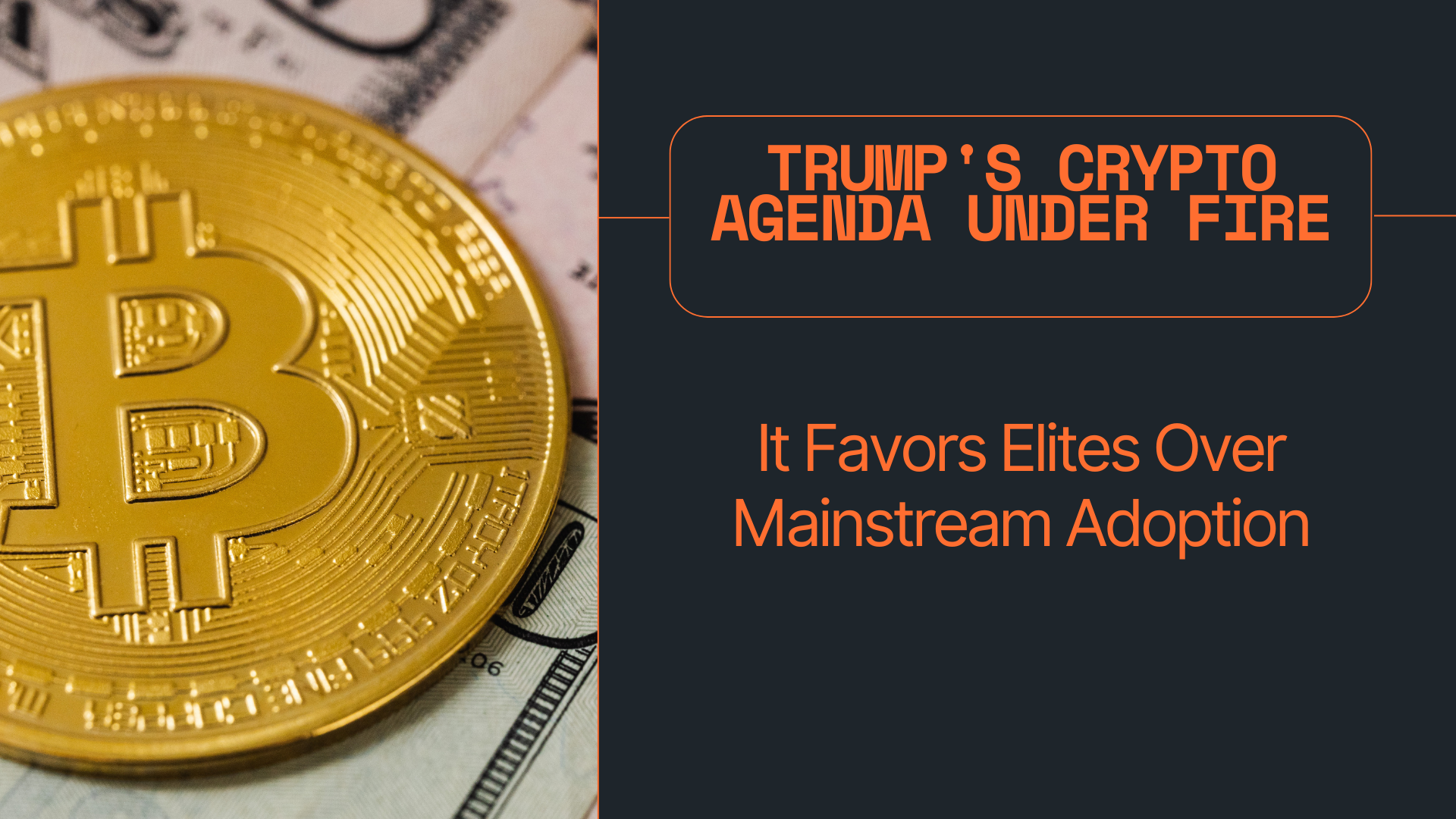
Cryptocurrency has long been hailed as a tool for financial empowerment, but critics argue that Donald Trump’s proposed crypto agenda is undermining its potential to democratize finance. A recent analysis claims that Trump’s policies prioritize the interests of political elites and wealthy investors, sidelining the broader public. This raises critical questions about the future of crypto’s promise of financial inclusion and the role of politics in shaping its trajectory.
Overview of Trump’s Crypto Proposals
Trump’s crypto agenda positions itself as a champion of “financial freedom,” advocating for reduced regulations and expanded crypto adoption. His proposals include tax incentives for crypto investments, streamlined on-ramps for institutional investors, and a push for blockchain-based solutions to enhance U.S. economic competitiveness. However, critics argue that these measures disproportionately benefit high-net-worth individuals and corporations, while ordinary users face systemic barriers.
For instance, Trump’s tax proposals allow wealthy investors to defer capital gains taxes on crypto holdings for up to 10 years—a policy critics call a “loophole for the ultra-wealthy”. Meanwhile, small investors often lack the resources to navigate complex tax reporting requirements, creating an uneven playing field.
Critics Accuse Agenda of Consolidating Power Among Elites
Trump’s policies risk centralizing crypto’s benefits in the hands of a few. His emphasis on institutional partnerships and lax oversight for big players could enable large entities to dominate markets, stifling innovation and competition. For example, proposed exemptions for major exchanges from anti-money laundering (AML) rules would favor well-funded firms while leaving smaller platforms vulnerable to legal scrutiny.
This aligns with broader concerns about wealth inequality in crypto. A 2025 study by the Blockchain Transparency Institute found that 1% of crypto wallets control over 40% of all Bitcoin, a trend critics say Trump’s policies would exacerbate. “The agenda isn’t about empowering individuals—it’s about rewarding those who already hold power,” said blockchain analyst Sarah Chen, cited in the article.
Impact on Mainstream Adoption
Mainstream adoption of crypto hinges on accessibility and trust. However, Trump’s approach may hinder both. By sidelining consumer protections, his policies could expose everyday users to scams and volatile markets without recourse. For instance, his opposition to mandatory crypto education initiatives leaves the public unprepared to navigate risks like rug pulls or price crashes.
Marginalized communities, including those without traditional banking access, are further excluded. “If crypto is only usable by the wealthy, it fails its core mission,” noted one financial expert.
Industry Reactions: Divided Loyalties
The crypto community is split on Trump’s agenda. Proponents argue that reduced regulation fosters innovation. “Overregulation stifles growth,” said a spokesperson for a major crypto exchange, who praised Trump’s “pro-business stance”.
However, grassroots advocates and DeFi developers are vocal opponents. They argue that Trump’s policies ignore systemic issues like energy consumption in proof-of-work blockchains and lack of equitable access to decentralized finance (DeFi) tools. “This isn’t crypto’s future—it’s a regression to the old financial system’s flaws,” stated Ethereum Foundation researcher David Kim in a separate interview.
Comparison with Other Political Approaches
In contrast to Trump’s elite-focused strategy, other political figures advocate for inclusive crypto frameworks. For example, Senator Cynthia Lummis (R-WY) has proposed bipartisan legislation requiring clear consumer disclosures and protections for retail investors. Meanwhile, progressive lawmakers push for crypto as a tool for economic inclusion, such as using stablecoins for micropayments in underbanked regions.
Trump’s agenda, by contrast, lacks such provisions, focusing instead on tax breaks and corporate incentives.
Future Implications: A Crossroads for Crypto
If implemented, Trump’s policies could deepen existing divides in the crypto space. Wealthy investors may capitalize on tax advantages and institutional partnerships, while everyday users face higher risks and barriers. This could slow adoption, as trust in crypto’s fairness erodes.
However, grassroots movements are pushing back. Advocacy groups like the Crypto Equality Coalition are mobilizing to demand policies that prioritize transparency and accessibility. “The fight isn’t just about regulation—it’s about who gets to define crypto’s future,” said coalition director Maria Gonzalez.
Conclusion
Trump’s crypto agenda highlights a pivotal moment for the industry. While it positions itself as pro-innovation, critics argue it entrenches inequality, prioritizing wealth over widespread adoption. As debates intensify, the path forward will depend on whether policymakers balance elite interests with the needs of everyday users. For crypto to fulfill its promise, its governance must reflect the diversity of those it seeks to empower.